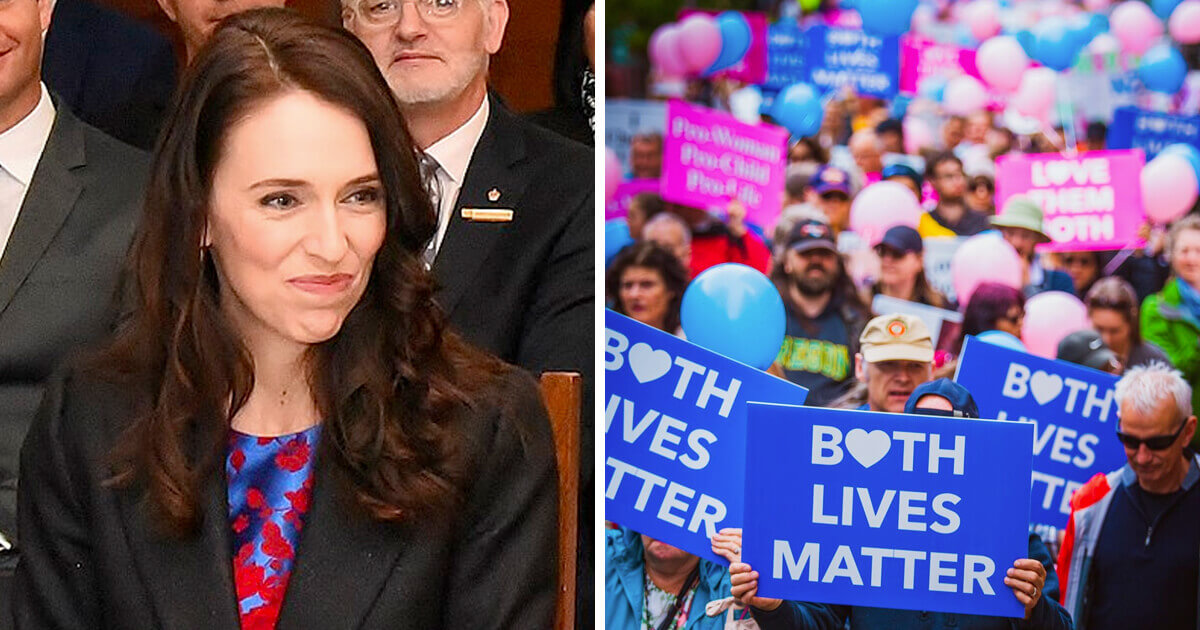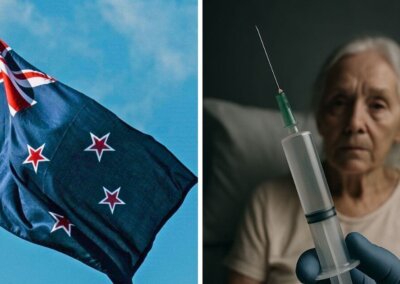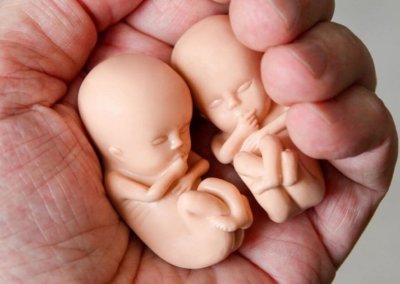Over 30,000 New Zealanders have signed a petition urging the Government to hold a referendum giving the people of New Zealand an opportunity to repeal the extreme abortion legislation which passed earlier this year.
On 18 March, New Zealand MPs voted to introduce the world’s most severe abortion law in the world by 68 votes to 51.
The new law scraps the previous 20-week limit and will allow terminations de-facto on-demand, for any reason, up to birth.
Additionally, there is now no requirement doctors must be involved with an abortion ‘procedure’ and MPs – including Prime Minister Jacinda Ardern – voted against an amendment requiring medical care for babies born alive after a ‘failed’ termination.
The new law has also legalised sex-selecitive abortion.
New Zealanders ignored
In light of extremely low public support and falling support from MPs, Jacinda Ardern’s Government rushed the final stages of the Bill’s progress through Parliament while politicians, the media and the rest of the country were distracted dealing with the coronavirus pandemic.
This included progressing the final sitting of the committee stage and the Bill’s third and final reading through parliament on the same day.
Polling, conducted by Curia Research revealed strong opposition to the new law by the public in New Zealand, and in particular by women.
Only 2% of women said they support abortion being available on-demand right up to birth. Meanwhile, 93% of women opposed sex-selective abortion being legal and 94% of women supported the previous legal standards for abortion providers and premises.
However, despite the extremities of the new law and little public support for the regulations, MPs voted to deny the public a final say on the legislation.
An amendment hoping to put the new regulations to a public referendum was rejected by 100 votes to 19 votes.
Staggeringly, the same group of MPs voted 63 to 57 to hold a referendum on the introduction of assisted suicide.
Additionally, due to a ‘confidence and supply’ agreement with the Green Party, Jacinda Ardern’s Labour Party agreed to hold a referendum on the legalisation of recreational cannabis. Both referendums will coincide with the general election on 19 September.
Now, 33,256 New Zealanders have signed a petition demanding a final say on the matter. To put this in perspectiveIf New Zealand had the same population as the UK, and the same proportion of the population signed the petition this would equate to well over 400,000 signatures.
The petitions author, Pamela McIlwraith, has said: “In my view the abortion legislation was rushed through Parliament while the entire country was distracted with COVID-19.
“I think there needs to be a referendum so the people can have their say—MPs should not be able to vote against giving the people their say in such important matters, especially a law legalising full term abortion.”
Once the petition closes on 21 May, a MP can decide to present the petition to parliament after which it will be referred directly to the relevant subject matter select committee.
The committee will then discuss the petition, before reporting back to parliament. If the committee has any recommendations for the government, the government must respond to these within sixty working days.
Sadly, as the Government has already rejected an opportunity to give the people of New Zealand a final say on abortion regulations any call for a referendum will likely be dismissed.
The extreme abortion legislation has also seen a very large backlash from the disability community with over 1,200 people with Down syndrome and their families distraught over Jacinda Ardern’s broken pre-election promise not to introduce abortion up to birth for Down syndrome.
Additionally, the Abortion Legislation Committee only heard from 139 people who wanted to give oral feedback on the Bill, despite over 25,000 submissions.
By way of comparison, the Climate Change Response (Zero Carbon) Amendment Bill received just 10,000 written submissions, but the Environment Committee heard 1,500 oral submissions.
Pro-life safeguards rejected
New Zealand Prime Minister, Jacinda Ardern, was among 80 MPs responsible for defeating an attempt to require healthcare professionals to give medical help to babies born alive after ‘failed’ abortions.
An attempt to protect babies from sex-selective abortion was defeated with 50 votes in favour and 70 against, despite strong concerns over the practice being highlighted in a submission to the Abortion Legislation Committee from Stop Gendercide – a campaign group who had urged MPs to support the amendment.
Other defeated pro-life measures, aiming to soften the scope of the Bill, included pain relief to babies being aborted between 20-weeks and birth, stronger protections to conscientious objection and requiring the collection of abortion statistics.
The rejection of pro-life safeguards has now left Canada with the most extreme abortion law in the world.
Most extreme abortion law in the world
Canada is the only country in the world that has no abortion law, as their law was struck down by a case brought to their Supreme Court in 1988.
Amongst the rest of the jurisdictions in the world that have abortion legislation, Victoria, Australia, currently has the most extreme law.
The law in Victoria allows for abortion right through to birth on physical, psychological and social grounds when approved by two doctors; this can be the abortion operating surgeon and anaesthetist.
This has, in practice, allowed for abortion on demand, for any reason, right through to birth in Victoria, Australia.
Ahead of the legislation being introduced in Victoria in 2008, abortion activists claimed that, although abortion would, in practice, be allowed for any reason, doctors would ensure that the vast majority of abortions would only occur in rare circumstances, such as when a baby had a condition where they would either die in the womb or shortly after birth (a fatal foetal abnormality or life-limiting disability) – similar claims are currently now being made about the proposed NZ abortion law by abortion campaigners and MPs in New Zealand.
Data from the 12 years of the law being in operation in Victoria shows that this has not been the case. Right To Life UK’s Public Affairs team have undertaken an extensive analysis of published abortion data on late-term abortions in Victoria from The Consultative Council on Obstetric and Paediatric Mortality.
A Channel 7 news report, broadcast on April 17 2010, reported that there had been a large increase in late-term abortions being performed at the Royal Women’s Hospital since the introduction of the 2008 Abortion Law Reform.
Presenter Jennifer Keyte stated how “midwives and doctors feel traumatized” by having to perform so many late-term abortions at the Royal Women’s Hospital. Journalist Louise Milligan said that there had been some ‘alarming requests’ for late-term abortions, including a request for a termination at 32 weeks because the baby had a cleft lip.
The new abortion law in New Zealand is even more extreme than the law in Victoria, Australia – making it the most extreme abortion law in the world.
It would allow abortions between 20-weeks’ gestation and birth with the go-ahead from just two health practitioners (this could include nurses and midwives) rather than the higher threshold of two doctors that are required in Victoria.In the proposed legislation in New Zealand, the Abortion Legislation Committee widened the, already loose, criteria to include “overall well-being” – making it even easier for abortions to happen between 20 weeks and birth in New Zealand. These are undefined terms and it will be up to the healthcare practitioner involved as to how they interpret them.












